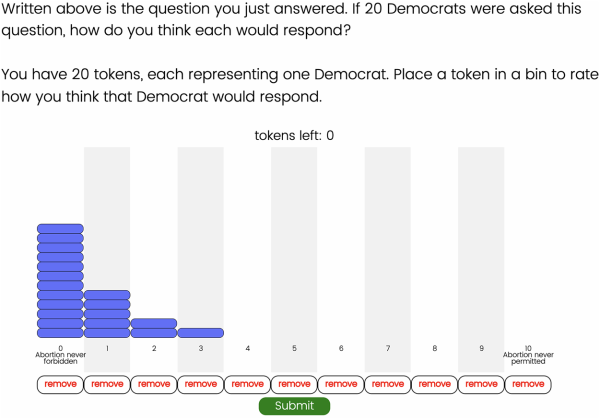New Study Reveals Democrats and Republicans Vastly Underestimate the Diversity of Each Other’s Views
A new study by Annenberg researchers has found that Democrats and Republicans consistently underestimate the diversity of views within each party on hot-button issues like immigration and abortion.

According to a new study by researchers at the Annenberg School for Communication at the University of Pennsylvania, both Democrats and Republicans significantly underestimate the diversity of policy attitudes within their own party and among the opposing party. This discovery challenges existing beliefs about polarization and suggests that reducing these misperceptions could ease political tensions.

The study, conducted by doctoral candidate Nicholas Dias, Associate Professor Yphtach Lelkes, and Annenberg School alum Jacob Pearl (Ph.D. ‘22) and published in Political Science Research and Methods, surveyed over 9,400 participants to examine American partisans’ perceptions of political attitudes.
“We’ve long thought that Americans see the other party as more extreme, but our results suggest that a greater problem may be that Americans fail to see the diversity of views within each party,” says Dias, lead author of the study.
Participants were first asked to share their own attitude toward a particularly polarizing policy issue — abortion, gun control, immigration — and then were asked to intuit how 20 Democrats and/or 20 Republicans would respond to the same question on a scale from 0 to 10.
For example, when asked about abortion, zero represented the position of “abortion should never be forbidden,” while ten represented “abortion should never be permitted.” Participants assigned each imagined Democrat or Republican a number representing their opinion.

The results revealed that Democrats and Republicans underestimate the diversity of the other party’s policy attitudes and their own party’s policy attitudes by more than a factor of two. However, Democrats and Republicans did not significantly overestimate how extreme the average member of each party was.
These findings challenge the traditional understanding of perceived polarization. Previous research has suggested that Democrats and Republicans consistently overestimate how radical the other party is, always believing that the other party is much more radical than it actually is. However, this study suggests that the greater error in Democrats' and Republicans’ perceptions is how diverse they perceive the parties to be.

The researchers also measured how participants felt toward the other party and how comfortable they were socializing with them. They found that, the more a participant perceived the other side to hold diverse attitudes, the more participants liked the other party and felt comfortable socializing with them. Perceiving the other party as having more diverse attitudes was also associated with lesser concern that the party supports violating democratic norms.
This research opens the door for new strategies to reduce polarization, such as encouraging people to recognize the moderate and diverse views held by opposing party members.
“Our research suggests that fostering awareness of the diversity within political parties could reduce partisan hostility and create space for more constructive dialogue,” says Lelkes, co-director of the Polarization Research Lab, a collaboration between faculty and researchers at the University of Pennsylvania, Dartmouth College, and Stanford University.
“American Partisans Vastly Underestimate the Diversity of Other Partisans' Policy Attitudes” was authored by Nicholas Dias, Yphtach Lelkes, and Jacob Pearl and published in Political Science Research and Methods.



